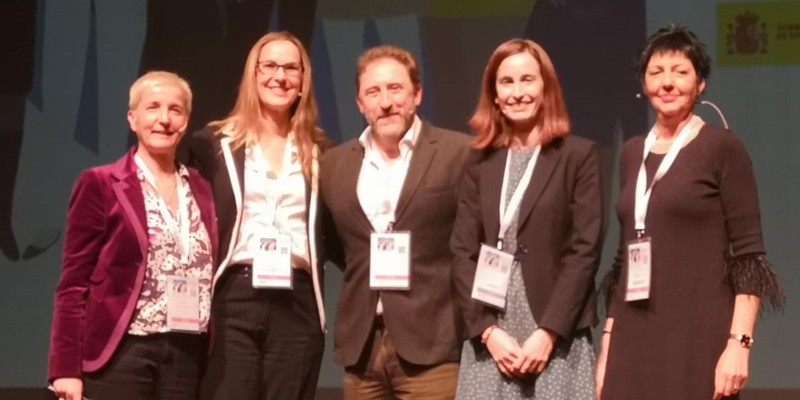GMV’s contribution to diversity: #mujeresciber

Women’s takeup of technical and technological careers remains very low, accounting for only 25% in the ICT sector. In the particular case of cybersecurity the global mean stands even lower at 11% (7% in Europe, 14% in North America and 8% in Asia) according to the Global Information Security Workforce: Women in Cybersecurity.
This situation calls for specific, groundbreaking measures to bring the staff make-up back into balance. Patricia Tejado, Manager of GMV’s Digital Public Services sector, explained in the 3rd “#mujeresciber (CyberWomen) event that GMV is now promoting various initiatives designed to achieve all the following: “get more women to come forward and widen the trawl for finding them; promote the company as a guarantor of equality between men and women; sign agreements with universities and training centers to increase women’s takeup of jobs where they are currently underrepresented, among others”.
Although the cybersecurity gender gap reflects a worldwide problem, the short-term aim is to achieve a female representation rate of at least 20%. Initiatives such as “the alliance called “CEO por la Diversidad-Equidad e inclusion”, (CEOs for Diversity, Fairness and Even-Handedness) will help us to work towards the ideal 50-50 split”, argues Tejado. This initiative, comprising 63 organizations with the representation of 9 women, including one from GMV, aims to promote innovative diversity-, fairness- and even-handedness-strategies in Spanish firms.
This problem needs to be tackled from the base up, GMV’s executive explained. “We have to get to school pupils before they take the crucial decision of which subjects to study”. We also need to counter and debunk beliefs found in a report by Vancouver’s SWIFT project (Supporting Women in Information Technology), which concluded that “females tend to believe they lack the skillset needed to be successful in the field of computing”. Another crucial factor is the family outlook. As GMV’s executive pointed out, “in countries like India or Malaysia the social and family ambience has played a vital role in genderless encouraging of youngsters to study IT-based degrees with good career prospects”.
Likewise, technology itself has to be bias-free. Tejado talked about specific cases in which “some cybersecurity technologies have highlighted the need of working with diverse, bias-reducing teams, otherwise such techniques as biometric facial recognition have problems in detecting the faces of women or persons of color”.
#mujeresciber” is an annual event organized by Spain’s National Cybersecurity Institute (Instituto Nacional de Ciberseguridad: INCIBE) with the collaboration of the Organization of American States (OAS) and the Government of Canada.